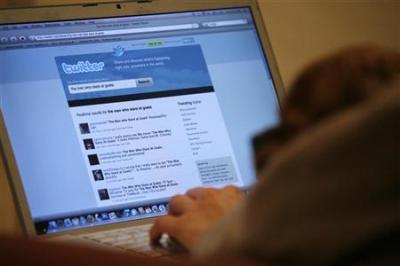Twitter censoring conservatives is worse than it appears

Big tech censoring conservatives has become a regular occurrence. Sometimes the victims are only temporarily banned, other times they are permanently banned and unable to return. Twitter seems to be the worst lately, always in the news for banning some prominent conservative. Many people shrug it off, claiming Twitter has become a hotbed of leftism, not worth their time.
But can it really be dismissed that lightly? Twitter offers something that Facebook and the other tech giants don’t quite have — an easy, free way to become famous and communicate with other famous people. Anyone can build up followers for free by following others who then follow you back. It is possible to accumulate hundreds of thousands of followers this way. Once well known, the odds increase that famous people will retweet you and interact with you. Twitter has made fame — and influence — easily available to the common man.
Even without large numbers of followers, Twitter allows anyone to tweet at famous people. Many of the recipients closely monitor these tweets and occasionally respond. Writers tweet their articles at others with large followings, requesting they retweet them. Many do.
While several prominent conservatives have been permanently banned from Twitter, many remain. Twitter hasn’t become a wasteland. Instead, it’s become one of the hottest places on the internet for breaking news. President Trump has helped with this, tweeting his own breaking news every day. Journalists go to his Twitter feed first every day when looking for White House news. While it’s not necessary to have a Twitter account in order to view tweets on Twitter, without an account you can’t retweet, respond, or comment on tweets.
While Twitter and the other tech giants are private companies, so free speech protections don’t apply, a large percentage of political speech now takes place on those platforms. There isn’t much of a “town public square” anymore where anyone can go spout their views to a large crowd outside. Instead, if we want to get out a message out free to a large group of people, we’re forced to use private social media platforms. Times have changed, and those who think we can ignore this restructuring of speech do so at their own peril.
There are smaller, competing platforms like Gab and MeWe that don’t discriminate against conservatives and may someday take the place of Twitter. But they’re growing rather slowly. Meanwhile, it’s best not to ignore Twitter. This doesn’t mean conservatives should acquiesce quietly to the censorship, in fact just the opposite. They should speak out loudly and condemn it, and attempt to get it reversed.
While Twitter isn’t as responsive as Facebook is to pressure, it does back down some of the time. When Twitter permanently banned conservative radio talk show host Jesse Kelly last November, the tremendous outcry caused the company to reverse the ban. Kelly saidthe ban was significant “because it was a big tool I used to promote my show, to promote things that I had written." He is not sure why he was banned, he was only told he violated Twitter’s terms of service.
Others aren’t so lucky. Investigative journalist Laura Loomer was permanently bannedfrom Twitter in November after criticizing Ilhan Omar, a Muslim who had just been elected to Congress as a Democrat from Minnesota. Loomer called Omar "anti Jewish" and said she is a member of a religion in which "homosexuals are oppressed" and "women are abused" and "forced to wear the hijab."
Yet many leftists who tweet hateful things toward Jews are not censored by Twitter. Omar herself tweeteda week ago that American political leaders’ support for Israel is “all about the Benjamins,” a reference to $100 dollar bills. She also tweeted that she thinks the American Israel Public Affairs Committee is paying politicians to support Israel. Twitter took no action against her, despite the public uproar over her anti-Semitic remarks.
Twitter is increasingly obliging the left when it comes to censorship. The company’s list of “offensive” speech is growing. Now, calling a transgender person by their pre-transition names or referring to them with the “wrong” pronouns can get someone banned. Meghan Murphy, a gender-politics blogger, has filed a lawsuit against Twitter after she was bannedfor referring to a man identifying as a woman as “him.” What’s troubling about this is Murphy’s view is a commonly held viewpoint on the right. Twitter is now censoring regular folks on the right, not just the outspoken ones.
The right desperately needs a platform that can compete with Twitter. The pressure is mounting every day as the censorship worsens. But until one of the minor competitors gains some major traction, it’s not wise to ignore Twitter.





















